David Ralph Williams Interview
The Indie Book Butler Interview.
Indie Book Butler: Let’s start things off with an introduction. Tell us a little about yourself for those not already aware of you and your work.
David Ralph Williams: I am an independent author of fiction and mostly I write ghost stories in the traditional style. I have a background in the biological sciences and also in art and design and particularly in stained glass, etching etc. I have always loved to tell stories and later in life, I decided to put some out into the world using Amazon’s KDP software. So far, I have released eight books that are currently available for purchase through Amazon, six of which are ghost story books or books with a gothic flavour. One difference is my collection of stories (set in the present-day) based on a fictional professional paranormal investigation team, ‘The Paranatural Detective Agency’ that I write with a co-author and friend Michael McManus.
IBB: You’ve got twenty words to tempt us to read your book(s). What would you say?
DRW: Once picked up, hard to put down. Stories packed with atmosphere. A slow creeping dread when it’s time for bed.
IBB: Where do you like to write?
DRW: In my small study at home where I live in the Cambridgeshire Fens in an old Edwardian Farmhouse. I fill my study with contraptions to help set the atmosphere I need in order to create the type of ghost stories I like to write. I am surrounded by books, old typewriters, chemistry sets, old paraffin lamps, creepy dolls. It certainly helps!
IBB: Is there anything you must have in order to write?
DRW: Total peace and quiet, unless there’s a particularly tempestuous storm battering against the casement, this is allowed.
IBB: What books have influenced you most, both as a person and as an author?
DRW: I would say any stories by MR James, or Susan Hill, and Steven King. Any ghost stories by the Victorian writers as they had an uncanny flair for capturing the feelings of terror and fear without the unnecessary need for graphic violence, Stephen King is the exception as it was reading his books as a late teenager that really inspired me to put pen to paper and create some of my first fiction although these stories are now relegated to the bottom drawer.
IBB: What is the one thing that has helped you develop most as an author?
DRW: I would say reading a broad range of books by lots of different authors. Learning from others is the key. I still think I need to read much more and maybe more of the classic literature, but a blend of old and new seems to be a good mix.
IBB: What do you want to achieve most from your writing?
DRW: I would simply like to leave something here for when I am gone and perhaps when I am a ghost myself! I would like to leave something people would pick up from time to time and read and enjoy and remember me and my stories and pass them on. I think we all have one time on this world to make a go at it, we all get stuck in our day jobs and preoccupied with our families and relationships and before we know it our time has slipped us by (almost) and I began to notice a few years ago that some people had started laying the foundations of things that would linger long after they were gone, such things need not be creative in the way books or other forms of art are, sometimes it can be a business or a brand, but a legacy all the same.
IBB: Have you received a favorite review of your work?
DRW: I appreciate all the reviews I get both good and bad because it means someone has taken the time to assess something I have put out there, and all writers know that we always write what we want to write for ourselves and hope in earnest that other people will also like it, and when they do and tell me by way of a glowing review I am always thrilled. I particularly like the reviews that compare my work to great authors as this is the best compliment I can ever receive.
IBB: Were there any particular parts of the writing/publishing process that you struggled with?
DRW: For me the hardest part is creating the physical book, when doing it all by myself from writing to cover design and interior layout, it is a challenge. For traditionally published authors, they have an entire team to do this for them whereas I am a solo act. I am learning all the time and getting better at it. The other main issue is the whole proofreading and editing task. You can’t really do this yourself as the brain cheats itself to see what it wants to see rather than what is on the printed page. Initially, I tried to do it all myself but reviewers began to pick out the little typos, or other formatting issues. I have been fortunate to find a good and trusted proof-reader and editor who has assisted me with some of my more recent works, and who is helping to tidy up some of the older books from time to time.
IBB: Is there something specific you do to improve your writing?
DRW: I listen to any advice I get from readers or fellow authors. I never read any book anymore without a pen and paper, I find reading has become less of a thing I do for pleasure and more of a technical exercise, jotting things down as I go through a book, things like how they structure their plot, how they make their characters likeable or real, all that kind of thing. Oh, and I read aloud my dialogue to see if it sounds clunky and needs editing in order for it to flow better.
IBB: What is the ideal relationship between editor and author?
DRW: A good editor tries to see where an author’s strengths lie and to help bring them out, similarly the editor would look at any weaknesses and try to improve them. An author should listen to any criticism with an open mind and take the view that you are being asked to do something that could in the end improve your work. It’s important to have a good and friendly working relationship with one’s editor.
IBB: If you had a direct line to someone who loves or hates your writing, what would you say?
DRW: If they loved my writing I would say thank-you, and please let me know you love it by leaving me a review otherwise I will never know, and unless I know I am doing something right I might think otherwise and give up and then there will be no more releases.
If they hate it, I’d say tell me why you hate it. If it’s a purely subjective thing then I can’t do anything about it, but if you hate it for a specific reason, a particular quirk I have that I could stop doing then I’d like to know as maybe I need it pointing out. For example, I had no idea people hated the fact I didn’t hyphenate which caused long spaces sometimes between words on the printed page. I always thought that hyphens at the edge of a margin were annoying so avoided using them. But now I understand how important it is to have a nice even printed page without formatting distractions.
IBB: If you could give one piece of advice to an aspiring author, what would it be?
DRW: Don’t release until it really is ready, and when you think it is, check again, and again.
IBB: What does your writing future hold for you?
DRW: Other than hours of pleasure doing something I love doing, I hope to increase sales and followers, and the ultimate dream, a TV adaptation in the tradition of the BBC’s Christmas ghost stories (Oh, if only that were possible!).
IBB: How have you set about the task of creating enticing cover art?
DRW: Covers are tricky, especially with ghost stories. It is different I think with horror genre book covers, you can go all out and put a gruesome picture on the cover, and it will sell books. I think you have to know your readers, and for the traditional ghost stories which are subtle slow burners, the cover needs to reflect this, and I never put any ghosts on the cover (only unobtrusively). Originally I set about it using photography, picking out a tiny part of an old house (an example can be found with my book ‘Olde Tudor’), recently I have been delving into the Victorian ghost story style and have tried to create covers (graphically) to show this. In the end, the cover sells the book and the cover should show the potential reader what to expect from the story.
IBB: How often do you read? What genre?
DRW: I read most days, and all kinds of things. I tend to read in the genre of the current work I am creating, so right now I am reading ghost stories.
IBB: Before we let you escape, it’s your chance to name-drop. Anyone who you feel is deserving of more recognition at present or someone whose writing you have recently enjoyed? Now is your chance to spread the word…
DRW: Other indie authors I would highly recommend are:
My co-author of ‘The Paranatural Detective Agency’, I just love his ideas, and he’s never too scared to let it go especially with hainted dolls!
Trev Hill (no relation to Susan Hill who is a particular favourite of mine too) has written some of the best original ghost stories I have read in recent times. Well worth a read.
Thanks for taking the time to answer our questions. Best of luck in the future.
For more on David and his work, please visit:







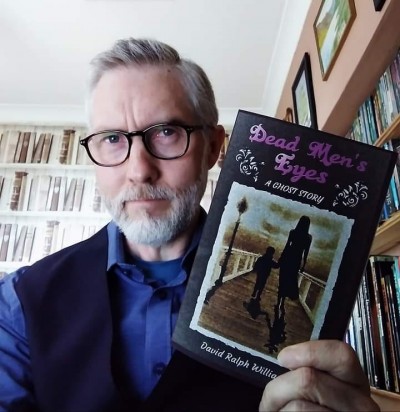

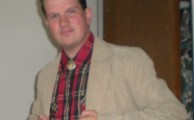
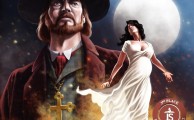

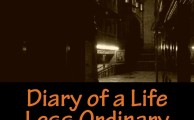
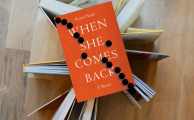

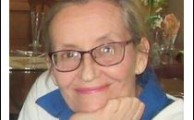




Leave a Reply
You must be logged in to post a comment.